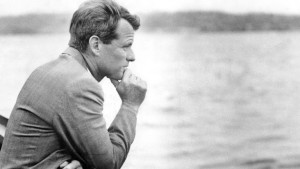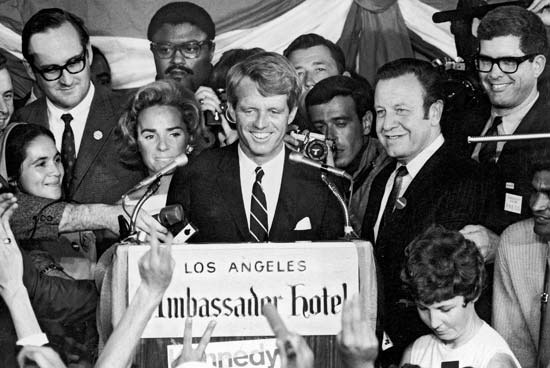While continuing to ponder the idea that Vice President Joe Biden might jump into the 2016 presidential race, my mind keeps turning to another prominent Democrat from a distant era.
About two generations ago, U.S. Sen. Robert F. Kennedy straddled the fence on whether he should seek the 1968 Democratic Party presidential nomination, just as the vice president is considering it today.
In 1968, an incumbent president, Lyndon Johnson, was going to seek re-election to a second full term. He already had a challenge from Sen. Eugene McCarthy.
RFK remained on the sidelines.
Today’s front runner, Hillary Rodham Clinton, also is facing a serious challenge, from Sen. Bernie Sanders. She also is facing a possible problem of her own making, those e-mails she sent out while serving as secretary of state.
LBJ had his own headache. It was the Vietnam War.
President Johnson then ran in the New Hampshire primary and finished first — but barely. McCarthy nearly beat him.
It was then that Sen. Kennedy joined the race. LBJ dropped out. Kennedy mounted a furious and frantic campaign against McCarthy and then-Vice President Hubert Humphrey.
He won the California primary on June 5, 1968, declared “on to Chicago and let’s win there.” Then he walked into the hotel kitchen, where the assassin was waiting.
It was over in burst of gunfire.
There’s a curious parallel between then and now.
I keep wondering if Biden is waiting for Clinton to make a politically critical misstep. What if something emerges from this e-mail probe that inflicts a mortal wound on the party’s front runner?
Would he then seek the party nomination to “rescue” it from someone who cannot win the election, just as RFK sought to rescue the party from McCarthy’s insurgency and HHH’s damage caused by his support for the Vietnam War?
The vice president seems be leaning toward running. If Hillary Clinton makes a mistake that dooms her candidacy, it had better occur quickly.
The difference between 1968 and 2016 shows itself in the preparation that’s now required to get one of these campaigns off the ground.

